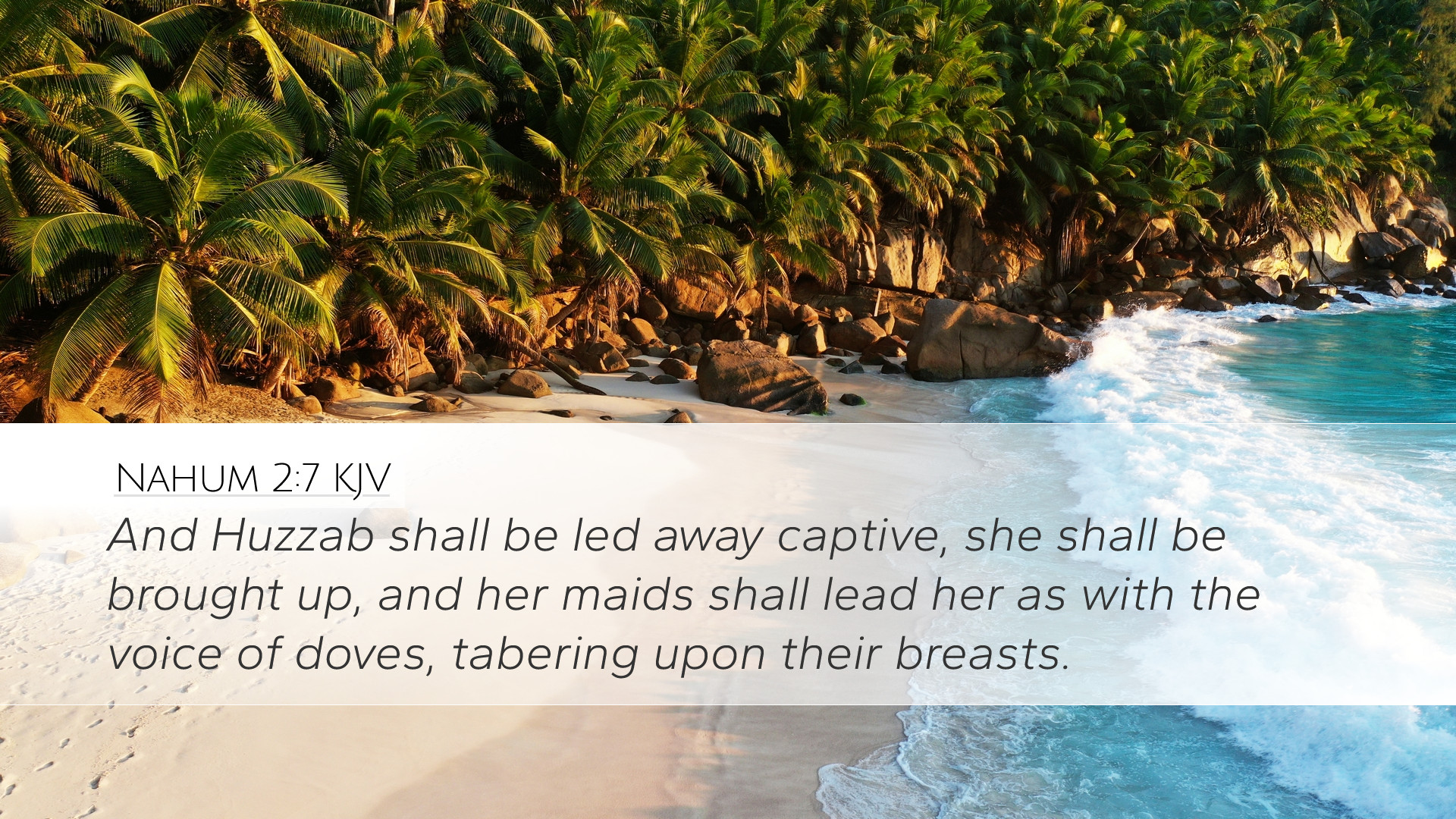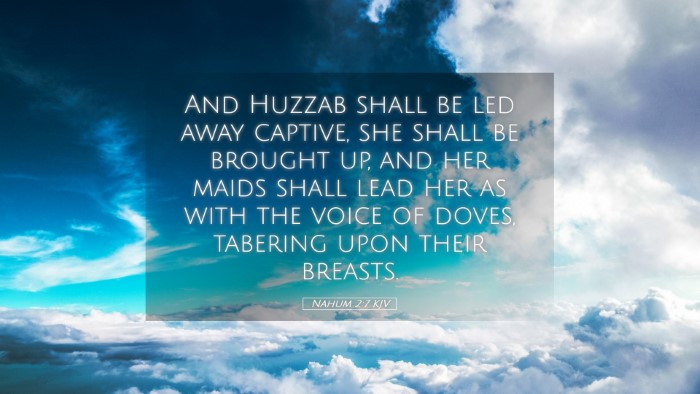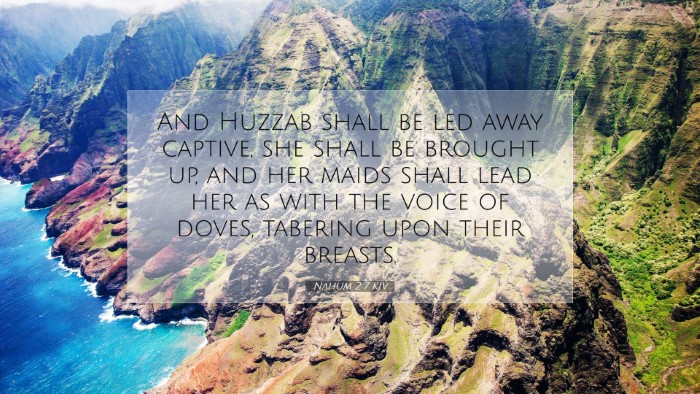Old Testament
Genesis Exodus Leviticus Numbers Deuteronomy Joshua Judges Ruth 1 Samuel 2 Samuel 1 Kings 2 Kings 1 Chronicles 2 Chronicles Ezra Nehemiah Esther Job Psalms Proverbs Ecclesiastes Song of Solomon Isaiah Jeremiah Lamentations Ezekiel Daniel Hosea Joel Amos Obadiah Jonah Micah Nahum Habakkuk Zephaniah Haggai Zechariah MalachiNahum 2:7
Nahum 2:7 KJV
And Huzzab shall be led away captive, she shall be brought up, and her maids shall lead her as with the voice of doves, tabering upon their breasts.
Nahum 2:7 Bible Commentary
Commentary on Nahum 2:7
Nahum 2:7 states:
“And Huzzab shall be led away captive, she shall be brought up; and her maids shall lead her as with the voice of doves, tabering upon their breasts.”
Contextual Analysis
The Book of Nahum is a prophetic text that focuses on the impending destruction of Nineveh, the capital of the Assyrian Empire, a foe of Israel and Judah. Nahum delivers a powerful message of judgment, emphasizing the certainty and completeness of God's impending wrath against a city known for its pride and idolatry.
Thematic Insights
The themes present in Nahum 2:7 can be dissected into several key points:
- The Fate of the Proud: Huzzab, referred to in this verse, symbolizes the pride and grandeur of Nineveh. Her captivity represents the downfall of those who defy God's will.
- God’s Sovereignty in Judgment: The imagery of captivity and mourning indicates God's control over nations and the fulfillment of divine judgment.
- The Role of Women in Prophecy: The mention of maids leading Huzzab emphasizes the comprehensive nature of the judgment, affecting all levels of society.
Exegetical Insights
Examining this verse through the lens of various public domain commentaries provides deeper understanding:
Matthew Henry’s Commentary
Henry explains that Huzzab is thought to be a literal figure, possibly a queen, but also serves as a representation of the city’s spirit and pride. He emphasizes that the mention of her being led away captive signifies a loss of strength and dignity. Her maids' actions, akin to doves mourning, indicate the sorrow that accompanies judgment, highlighting the devastation in the hearts of the people.
Albert Barnes’ Notes on the Bible
Barnes outlines that Huzzab may represent both a person and a metaphor for Nineveh itself. He notes that the act of being led away doubles as a potent symbolism of the city’s demise. The captives being led away by maids accentuates the humbling of Nineveh and its leaders. It draws attention to the emotional toll of destruction, contrasting the previously arrogant self-worth of the Assyrians.
Adam Clarke’s Commentary
Clarke delves into the significance of Huzzab’s name, suggesting it may carry meanings associated with being seen or shaded. This reflects the once-glorious position of Nineveh, which will now be obscured and diminished by God’s hand. Clarke also notes the tenderness expressed in the portrayal of the maids and the “voice of doves,” signifying a lament contrasting with the past pride of Nineveh.
Theological Implications
This verse sheds light on several theological principles that resonate with contemporary faith communities:
- Divine Justice: God’s judgment is not arbitrary; it is based on righteousness. The fate of Nineveh illustrates the results of systemic injustice and sin.
- Human Fragility: The imagery highlights the fleeting nature of power and prestige, serving as a reminder to believers of the importance of humility before God.
- Hope in Judgment: For the oppressed, Nahum’s prophecy can serve as a source of hope, affirming that God sees and will act against all forms of oppression.
Conclusion
Nahum 2:7 encapsulates the deep emotional and spiritual currents present in the divine narrative of judgment. It invites reflection on the state of nations, individual pride, and the inexorable nature of God’s justice. Through the examination of this verse, one not only gains insight into the prophetic literature but also finds practical application for personal and communal faith.


